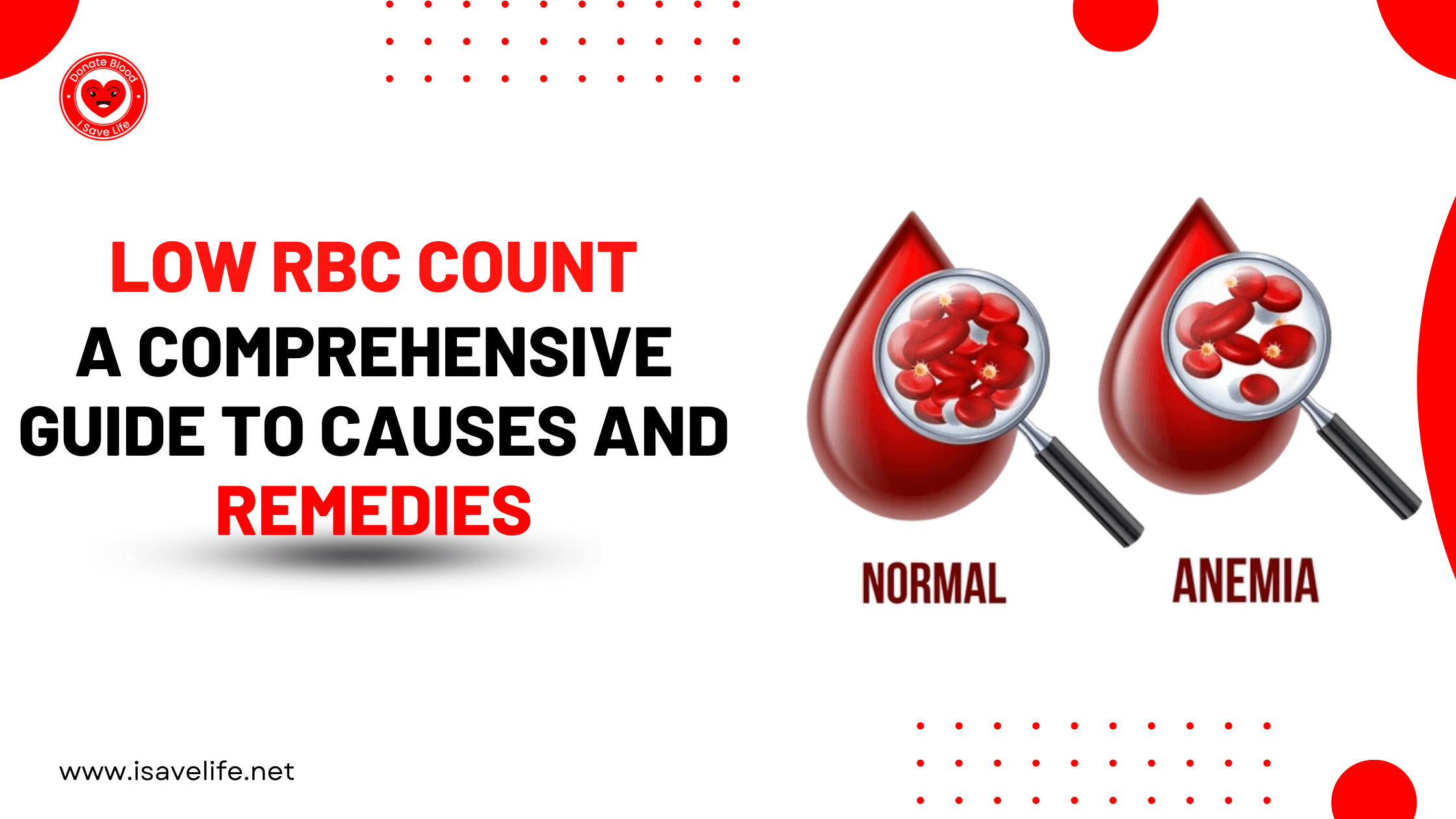
Low RBC Count: A Comprehensive Guide to Causes and Remedies
08-Mar-2024
Having a low red blood cell (RBC) count can impact your overall health and well-being. But what exactly causes it, and how can you remedy the situation? In this blog, we'll provide you with a comprehensive guide to understanding the causes of low RBC counts and explore various remedies to help improve your condition.
Understanding Low RBC Count:
Red blood cells carry oxygen from the lungs to the rest of the body. When your RBC count is low, it means that your body may not be getting enough oxygen, which can lead to symptoms like fatigue, weakness, and shortness of breath.
Causes of Low RBC Count:
There are several factors that can contribute to a low RBC count, including:
1. Iron deficiency: A lack of iron in the body can impair the production of red blood cells, leading to a low RBC count.
2. Vitamin deficiency: Deficiencies in vitamins such as vitamin B12 and folate can also affect RBC production.
3. Chronic diseases: Certain chronic diseases, such as kidney disease and cancer, can interfere with the body's ability to produce red blood cells.
4. Bone marrow disorders: Conditions like aplastic anemia and leukemia can disrupt the production of red blood cells in the bone marrow.
Some medications, including chemotherapy drugs and certain antibiotics, can cause a decrease in RBC production.
Normal RBC Range
Normal range of red blood cell (RBC) count varies depending on age and gender. The typical values are:
For males: 4.7 – 6.1 million cells per microliter (µL)
For females: 4.2 – 5.4 million cells per microliter (µL)
Factors that increase the risk of developing low red blood cell count:
1. Age: Older adults are more likely to develop anemia due to ongoing health issues and inadequate nutrient intake.
2. Sex and gender: Women may have a higher risk of anemia due to menstrual bleeding or childbirth, while men may be affected by certain health conditions.
3. Lifestyle: Poor diet and unhealthy habits increase the risk of anemia by depriving the body of essential nutrients.
4. Medical conditions: Diseases affecting the immune system, gastrointestinal problems, and chronic kidney disease can lead to anemia.
Remedies for Low RBC Count:
The treatment for low RBC count depends on the underlying cause. Here are some common remedies:
1. Iron supplementation: If iron deficiency is the cause of your low RBC count, your doctor may prescribe iron supplements to help boost your iron levels.
2. Vitamin supplements: Taking supplements of vitamin B12 and folate can help address deficiencies and improve RBC production.
3. Treating underlying conditions: Treating any underlying chronic diseases or bone marrow disorders can help restore normal RBC production.
4. Blood transfusions: In severe cases of low RBC count, a blood transfusion may be necessary to replenish red blood cell levels.
5. Dietary changes: Eating a healthy diet rich in iron, vitamins, and minerals can support RBC production and overall health.
Conclusion:
A low RBC count can have a significant impact on your health, but it's important to understand that it can be managed with the right approach. By identifying the underlying cause of your low RBC count and following the appropriate remedies, you can improve your condition and restore your overall well-being. If you're experiencing symptoms of low RBC count, be sure to consult with your healthcare provider in India for proper diagnosis and treatment!